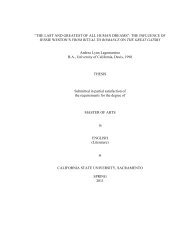Complete Thesis_double spaced abstract.pdf
Complete Thesis_double spaced abstract.pdf
Complete Thesis_double spaced abstract.pdf
Create successful ePaper yourself
Turn your PDF publications into a flip-book with our unique Google optimized e-Paper software.
(1954) and Armas (1954-1957). The final two individuals were a result of the assassination of<br />
Armas, Gonzalez (1957) and Flores (1957). While Guatemala had a brief democratic interlude,<br />
begun under the term of President Arévalo and finished under President Arbenz, from the 1954<br />
coup until the end of the period in 1960 marks Guatemala’s return to authoritarian rule.<br />
By 1960 General Ydígoras was at the midpoint of his presidential tenure. General<br />
Ydígoras was known for his close ties to Ubico and his two previous attempts at the presidential<br />
office. He was initially the preferred candidate of the military establishment; finally elected in<br />
1958 after initial accusations of electoral fraud he soon alienated the younger officer corps with<br />
his regime’s “rampant corruption” (Black,1984, 19). The younger officers were further offended<br />
with General Ydígoras’ permissive attitude toward the U.S. military operating within Guatemala.<br />
A substantial number of officers staged an unsuccessful coup in 1960, later in the spring of 1962<br />
many of these officers reorganized with students and labor leaders to lead massive strikes<br />
throughout the state. In only a few years General Ydígoras had managed to alienate nearly all<br />
sources of potential support. A second coup was attempted in 1962 by elites and members of the<br />
air force. By the end of 1962 students, public sector workers, labor unions, the business sector,<br />
members of the military, the Catholic Church, all three opposition parties, and leadership in the<br />
United States all abandoned support for the leader. 15<br />
After allowing Arévalo to return to<br />
Guatemala for a possible presidential candidacy, with the consent and possible assistance of the<br />
United States government, General Ydígoras was removed definitively from power by the<br />
military in 1963 (Schlesinger and Kinzer, 1982, 242-243).<br />
General Peralta Azurdia took over the presidency after the ouster of General Ydígoras; he<br />
was approved by the Guatemalan military and the United States government. President Peralta, a<br />
Guatemalan nationalist, continued the tradition of authoritarian rule. He successfully<br />
15 Handy, 153. General Ydígoras was never the preferred presidential candidate of the United States.<br />
75



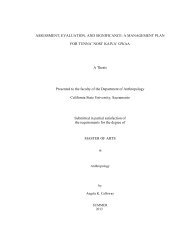
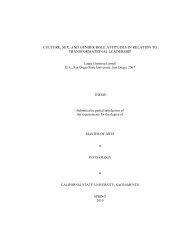
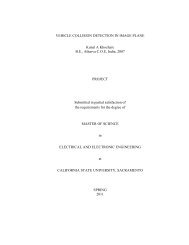
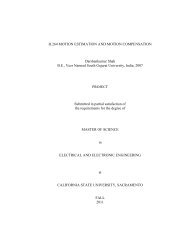
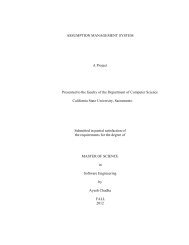
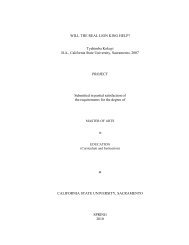
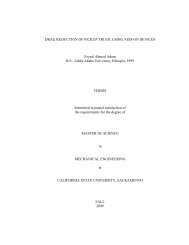
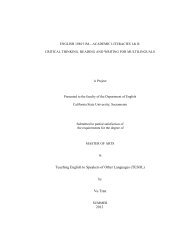
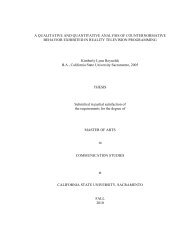
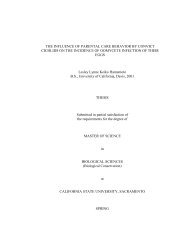
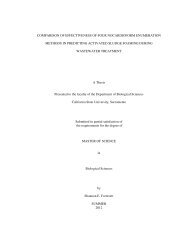
![Completed Thesis to Grad Studies[Final3].pdf](https://img.yumpu.com/17538645/1/190x245/completed-thesis-to-grad-studiesfinal3pdf.jpg?quality=85)
